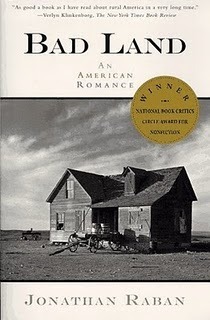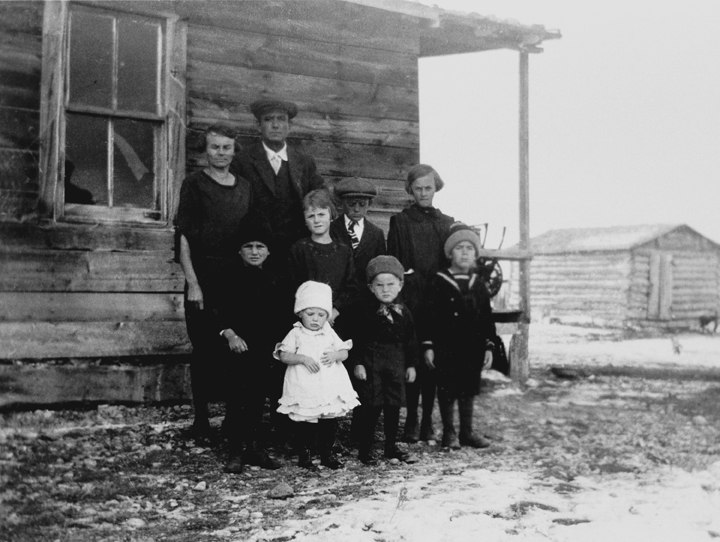
A story about how southeastern Montana (along the Chicago, Milwaukee, St. Paul and Pacific Railroad [CMStP&P]—a.k.a. the “Milwaukee Road”) was settled in the early 20th Century by homesteaders being duped by the US Government and the Railroad about the quality of the land. Turns out this section of America has terrible topsoil (“320 acres of dust”), but there was all this propaganda at the time about “dry earth farming” that really deceived people.
Well, all these hard-working American farmers—many recent European emigrants—move out with great hopes and dreams, work their butts off, and then find out how brutally hard it is with horrifically unproductive land and atrocious elements. At one point in the book, this man must pull down the fencing he’s spent countless hours erecting to use as firewood lest his family freeze to death. (And then you, Reader, think to yourself, ya know…I’m not sure I’d characterize my day as hard anymore.1) Reminds me of this quote which is unattributable:
For you to be born required you to have two parents, four grandparents, eight great-grandparents, 16 great-great grandparents…In fact, if you go back only 10 generations it took 4,096 ancestors for you to be here today. That’s 4,096 people who struggled, survived, loved, fought, won, lost, cried, and cheered. Your ancestors would have faced unbelievable adversity, collapses of governments and countries, world wars, starvation, extreme poverty, nasty diseases that there was no cure for, and so much more. Yet here we are complaining about how hard it is at a time where it has never been easier to be healthy, wealthy, and thrive. Imagine telling your great-great-grandfather how difficult your day was today. Your hardest day would be easier than the majority of his best days. You today live the life that your ancestors would have prayed for. You have the ability in today’s world to change your bloodline forever.
It’s very well-researched and laid out, but the reason this is a favorite of mine is that my paternal grandmother’s family went through these harsh realities at this exact time in this very same county in Montana. In fact, she was born there, but when she was still a toddler her family was forced to abandon their homestead and catch an eastbound train to Wisconsin before they starved. The Lutheran Church helped finance their escape and get them back on their feet, creating such a sense of indebtedness that when Grandma converted to Catholicism years later, her parents were a little resentful—how could she turn her back on the institution that literally saved their family?
 Miessner family (Grandma in white). Rothiemay, MT (1925).
Miessner family (Grandma in white). Rothiemay, MT (1925).
Anyway, the book is both a fascinating read and great antidote for wallowing in self-pity.
— ᴘ. ᴍ. ʙ.
It’s so interesting that we can’t be grateful for our amazing standard of living these days (e.g., even in a small areas of life like oral health, our situation is night and day superior to that of a couple generations ago). There’s a something called Relative Deprivation Theory, developed by sociologist Samuel Stouffer, which proposes that people’s feelings of discontent arise from comparing their situation to others, rather than from absolute standards. ↩
← back to books | tweet | cast